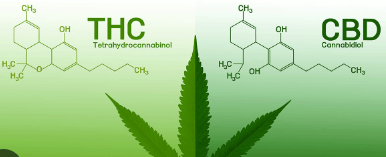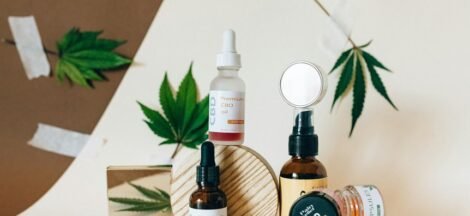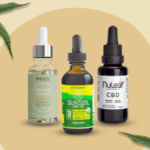Are you curious about the buzz surrounding CBD and THC, but unsure of their differences? Look no further! In this blog post, we’ll explore how these two compounds differ in terms of legalization, cultivation, and consumption. Whether you’re a seasoned cannabis consumer or simply interested in learning more, this article will provide valuable insights into the unique characteristics of CBD and THC. Let’s dive in!
What is CBD?
Cannabidiol (CBD) is a non-psychoactive cannabis compound that has many potential medical benefits. CBD is legal in some states, but illegal in others. THC is the psychoactive compound that makes cannabis recreational. It is possible to cultivate both CBD and THC strains of cannabis, though they may have different effects depending on their concentration.
What is THC?
THC (tetrahydrocannabinol) is the primary psychoactive compound in marijuana. It is responsible for the “high” users experience when smoking or ingesting marijuana. THC binds to cannabinoid receptors in the brain, which can produce a range of effects including relaxation, euphoria, and changes in perception. While CBD does not have psychoactive properties, it does interact with our body’s endocannabinoid system and has been shown to have therapeutic benefits.
Difference between cbd and thc? Why are they different?
Cannabidiol (CBD) is a non-psychoactive cannabinoid found in cannabis plants, while THC is the main psychoactive component. CBD is legal in many states and has been proven to be effective in treating a variety of conditions, such as chronic pain, anxiety, and seizures. THC, on the other hand, is still illegal at the federal level but is widely available and increasingly popular due to its psychoactive properties. Here are some key differences between CBD and THC:
- CBD Is Legal at the State Level While THC Is Illegal at the Federal Level
Although both CBD and THC are illegal at the federal level, this hasn’t stopped states from legalizing them. CBD is legal in 34 states while THC is legal in nine states. The legality of CBD has made it a preferred ingredient in alternative health products while THC has led to its widespread use for recreational purposes.
- CBD Has Been Proven to be Effective in Treating Conditions Such as Chronic Pain, Anxiety, and Seizures
While there are still limited studies on the benefits of CBD for human health, many experts believe that it has potential for treating a wide range of conditions. Some of these conditions include chronic pain, anxiety disorders, epilepsy, and more.
Where can I find CBD?
CBD and THC are two of the most well-known cannabinoids in the marijuana plant. Both CBD and THC have been shown to have a variety of medicinal benefits, but they also differ in a few key ways. Here we’ll outline the main differences between these two cannabinoids so you can better understand their different legal statuses, cultivation methods, and how they are consumed.
The legality of CBD varies depending on where you are located. In some parts of the world, like Canada and Europe, it’s completely legal as long as it’s sourced from certified organic plants. In other places like America, CBD remains illegal at the federal level but many states have passed laws legalizing its use for specific purposes such as treating cancer or epilepsy. The tricky part here is that there’s no clear definition of what ‘cannabis’ actually includes – so if you source your product from a
There are a few main ways to distinguish between CBD and THC:
-CBD is non-psychoactive, while THC is psychoactive.
-CBD is legal in some states, but not all, while THC is federally legal.
-CBD is cultivated industrially, while THC is typically grown wild.
-CBD products can be found online and in retail locations, while THC products are typically only available through licensed dispensaries.
How do I consume CBD and THC?
CBD and THC are two of the most commonly consumed cannabinoids in the world. The two compounds have a few key differences, which can impact how they are used legally, cultivated, and consumed.
When it comes to consumption, CBD and THC can be consumed in different ways. THC can be smoked or vaporized, while CBD is often eaten as a food or beverage. Additionally, CBD and THC can be legal in different states. While both are technically legal in all 50 U.S. states as of 2019, some states have more relaxed cannabis laws than others. For example, while marijuana is currently legalized for recreational use in California, Nevada, Maine and Massachusetts, it is not legal for recreational use in Oklahoma or Utah.
When it comes to cultivation and production, there are also some key differences between CBD and THC. While both hemp and cannabis plants contain CBD and THC, hemp doesn’t contain any psychoactive properties (like THC). Cannabis plants that are bred to produce high levels of THC are typically known as “sativa” strains while strains that produce higher levels of CBD are considered “indica.”
Conclusion
CBD and THC are two of the most famous cannabinoids in the world. They both have different effects on the body, but what exactly is the difference between them? In this article, we will explore this discrepancy in detail and explain how each cannabinoid affects your health. We hope that our comparison has helped you to understand CBD and THC better and that you can use this information to make informed decisions about whether or not to try them out for yourself.





 CBD Oil and Pain Management: what is cbd oil good for?
CBD Oil and Pain Management: what is cbd oil good for?